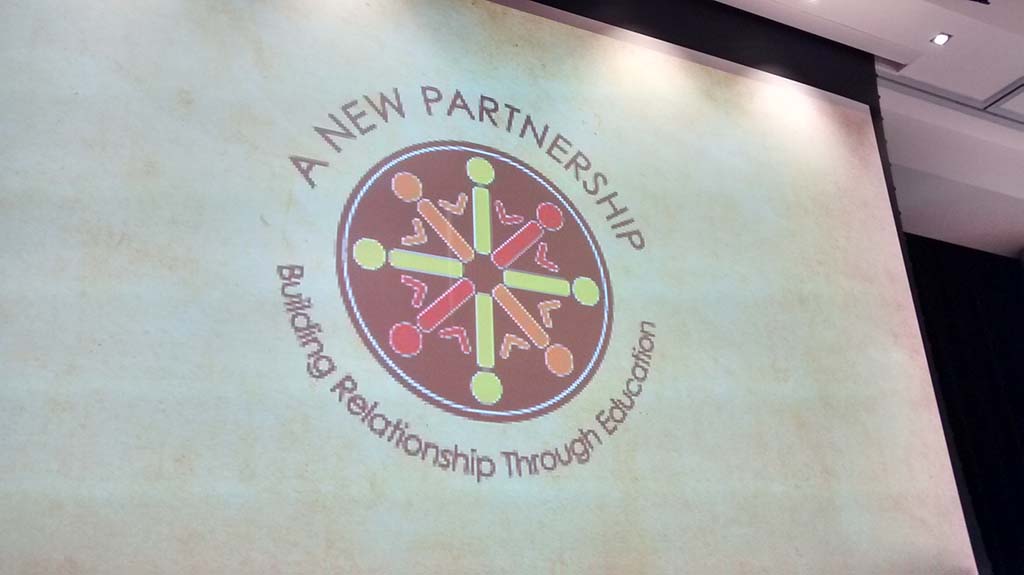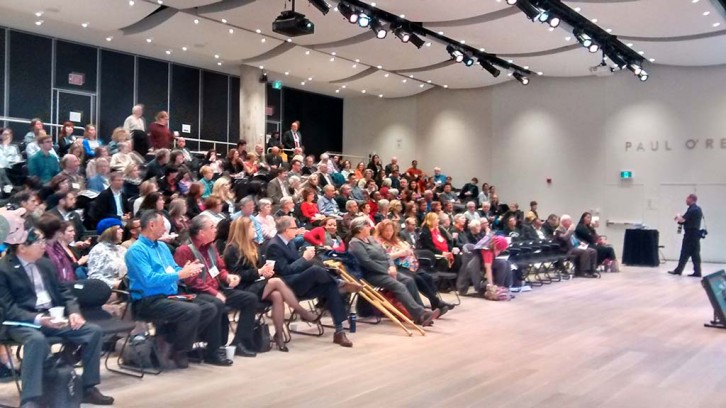Forum
Paul Martin, Perry Bellegarde speak at Aboriginal education forum
Former PM and AFN national chief speak at Halifax library

caption
Paul Martin and Perry Bellegarde spoke positively about the opportunity for change in relationships between aboriginals and non-aboriginals at a forum in Halifax Monday.
“A New Partnership: Building Relationship through Education” welcomed people of all backgrounds to participate in a conversation about continuing and building on reconciliation.
The forum focused on how relationships can be built through education about the culture of First Nations, Metis, and Inuit. Speakers mentioned they hope indigenous education will improve in schools across Canada.
Closing the gap
Assembly of First Nations (AFN) National Chief Perry Bellegarde stressed the sequence of events he hopes to see: “education, awareness, understanding, and action.”
Bellegarde hopes that this sequence will lead to closing the gap between indigenous and non-indigenous Canadians.
“According to the United Nations Human Development Index, Canada is rated sixth,” he said. “When you apply those same indices to Canada’s indigenous peoples, they’re 63rd.”
“We know this is because of the Indian Act and residential schools.”
Bellegarde went on to describe what that gap looks like.

caption
Information about Indigenous peoples in Canada based on Perry Bellegarde’s speech at the Halifax Central Library on November 16, 2015.Optimism about new Prime Minister
Bellegarde was optimistic about the new government’s promises towards indigenous communities.
“Our job is to make sure that they live up to the commitments that they made before the election so that we can see things implemented,” he said.
He pointed to the upcoming Speech from the Throne and April budget, saying they will be indicators of what Prime Minister Trudeau’s policy will be.
“It’s almost like this bright warm wind has blown across Canada,” Bellegarde said of the new government to a cheering audience.
Former prime minister Paul Martin also spoke at the education forum. He said that the new Indigenous and Northern Affairs Minister, Carolyn Bennett, would need input from Canada’s Aboriginal Peoples.
“Bennett is going to need help from First Nations to put together [an education] plan,” said Martin.
Success through communication
About 300 people participated in the forum, held at the Halifax Central Library’s Paul O’Regan Hall.
They cheered loudly when Martin gave examples of success stories in schools across Canada. He remembered one school in Winnipeg that had tension between racial groups. About 20 per cent of students were aboriginal.
“A teacher had an idea. At noon, they would put ten to fifteen kids in a classroom.”
These students were of all origins: aboriginal, Chinese, Ethiopian, and Caucasian.
“They could do whatever they wanted. But they couldn’t leave for an hour. So they talked to each other and exchanged views.”
Martin stressed the importance of communication in bridging gaps between different communities.
“We don’t talk together much in this country,” he said. “We will not have the problems that we have had if we talk together and we understand together.”

caption
About 300 people participated in a forum on education and the potential it has to improve relationships between Aboriginal and non-Aboriginal CanadiansSeeking federal funding
Plans to improve education on reserves are going to be expensive, both Martin and Bellegarde agree. They insisted that investment is necessary to close the gap between aboriginal and non-aboriginal students.
“You’ll have huge returns on investments later,” Bellegarde told reporters after the forum. “When you open the door to a new school, you close the door on a jail.”
Neither Bellegarde nor Martin specified how much money they hope the federal government will invest.

